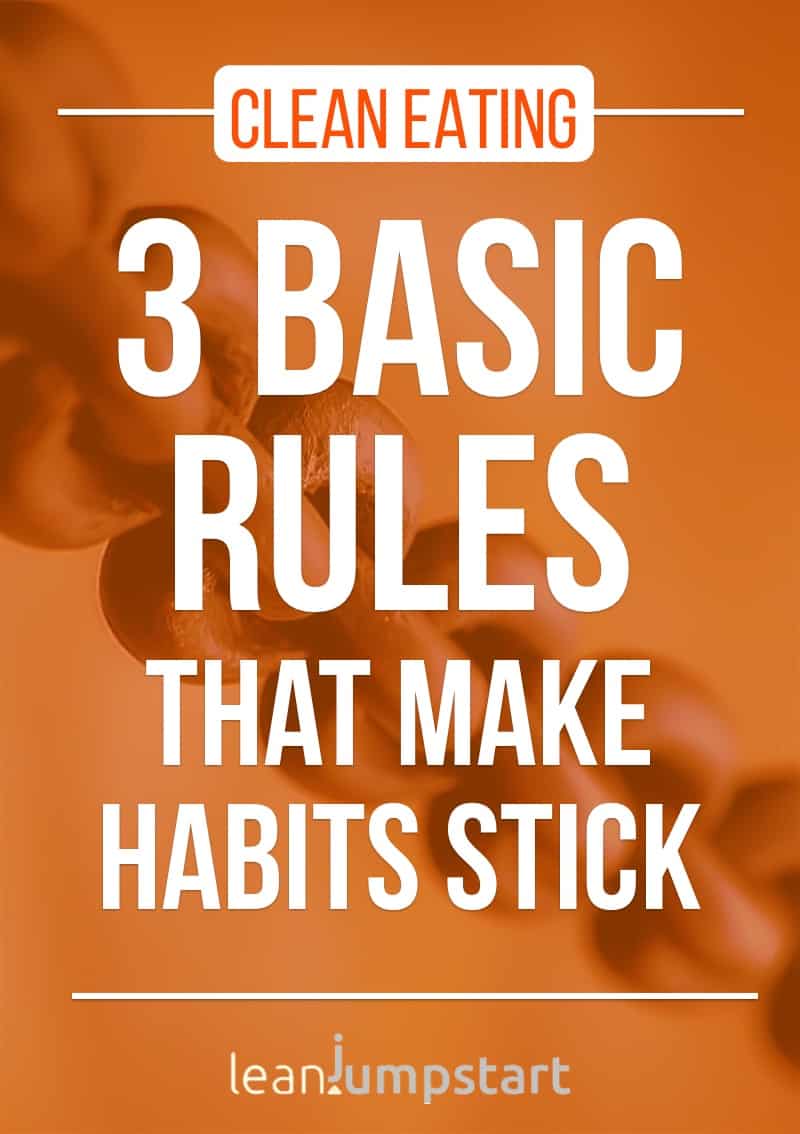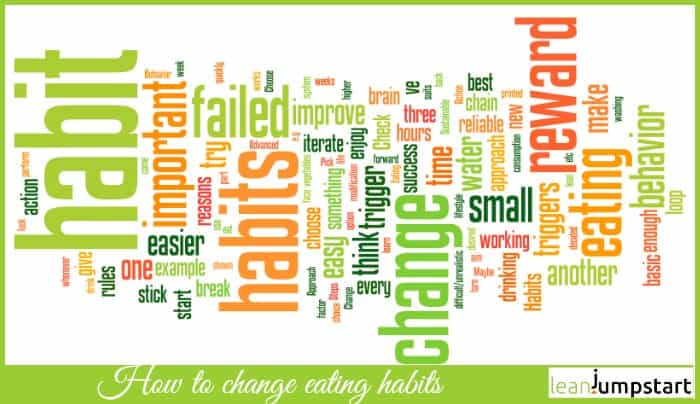Do you want to change eating habits in a sustainable way? The following approach for the more ambitious among you will show you how to iterate routines (repeat the action to improve) you failed recently. You will learn how to try it again with one or more adjustments. You’ll also learn how long it takes to make a new routine stick.
But first, let’s look at the behavior checklist you’ve printed and filled out in our healthy changes challenge.
Check the 3 basic rules that make behavior stick
Pick the most important change that you’ve failed at sticking to and think about the reasons for the failure. A failed “keystone habit,” like drinking enough water, would be a great choice.
Check if your habit change was based on the 3 basic rules:
1) Were the triggers as reminders reliable?
The best triggers are routines in your life that are already automated, e.g. brushing your teeth, washing your face, eating dinner, etc.
If you connect such triggers to the new behavior, you set up a system (habit loop) that makes it easier to start. For example: whenever I prepare vegetables for my meal, I eat a portion of raw veggies to increase my nutrient consumption for the day.
What was the trigger in the important activity that you failed? Have you chosen a reliable trigger that signals your brain that it is time to perform the specific action? If you think the trigger was not effective enough, this time choose another one and improve the change.
2) Was the change easy and realistic?
The easier the tasks you are tackling, the higher your success rate. Now let’s come back to the behavior you failed: was this tiny challenge actually easy, or was it too difficult/unrealistic for you? Be very sincere with yourself.
If the bad habit you were targeting did not feel easy to break, then an option would be to make it this time easier. For example: if you can’t drink a glass of water every two hours, aim for every three hours, or find another water drinking routine that suits you.
Once you’ve decided, try again to build a behavior chain over several weeks.
3) Did you use a small reward that you enjoy?
Research has shown that the reward is an important part of the habit process. Enjoy each small success and give yourself a small reward that works for you.
You’ll achieve the best results when the reward follows the desired behavior pretty quickly, and when you reward the behavior frequently.
It could mean giving yourself something small you enjoy: Did you choose an appropriate reward for your important change? If not, think about another reward.
3 action steps for iterating habits
- Figure out which of the above reasons was most responsible for making you fail.
- Choose only one factor of the three above that you change. Write down your new method.
- Try it again this week and iterate the failed activity. Pay attention to whether it is working and to obstacles.
Don’t give up if you break the chain again; improve your habit loop instead. There are still lots of other options you can try to ultimately reprogram your brain for healthy eating!
How long does it really take?
In a study published in the European Journal of Social Psychology, Philippa Lally and her team from University College London researched how long it takes to change a habit.
They examined 96 people over a period of 12 weeks. Each participant chose a behavior and reported daily whether they followed it or not.
At the end of the 12 weeks, the researchers investigated how long it took each person to automate the activity.
Guess the answer?
On average, it takes more than 2 months for a habit to become automatic. To be more precise, about 66 days.
But even here you can’t just generalize. The study showed that the duration strongly depended on the routine, the test person and the circumstances. Some subjects automated an activity after 18 days, others after 254 days. (1)
It’s your turn!
I’d love to hear what’s working for YOU in the context of changing eating habits and weight loss. I look forward to reading your comment!



